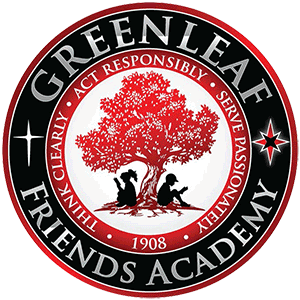Christian schools of all kinds often find themselves in an awkward situation: we exist in the shadow of much larger public schools, and many of our teachers, students, and families are more familiar with the public school’s culture, traditions, and habits than they are with the culture and habits of their own Christian school. This dynamic can make it difficult for us as Christians to follow the mandate of our school’s founding verse: “Do not be conformed to this world, but be transformed by the renewing of your mind….” (Romans 12:2.) The culture and habits of the public school can dictate the culture of the Christian school, often without us even knowing it. I’m not sure this can be seen more clearly anywhere than in a Christian school’s approach to dances.
GFA, and all Christian schools, should start by asking a simple question: why would a Christian school hold a dance? There are good and bad answers to that question. If our answer is because the local public school does it, then we should rethink our answer. Christians should not be in the business of justifying our own habits, traditions, or culture by responding that we are just doing what the world does. Jesus instructed us as his followers that we are not of this world; He has called us out to be separate and distinct, and that should apply to our culture and habits as well as our personal conduct and loves (John 15:19.)

Students at Greenleaf Friends Academy enjoy an evening dancing together under the stars. PHOTO CREDIT: Jackie Lehman
GFA, and all Christian schools, should start by asking a simple question: why would a Christian school hold a dance? There are good and bad answers to that question. If our answer is because the local public school does it, then we should rethink our answer. Christians should not be in the business of justifying our own habits, traditions, or culture by responding that we are just doing what the world does. Jesus instructed us as his followers that we are not of this world; He has called us out to be separate and distinct, and that should apply to our culture and habits as well as our personal conduct and loves (John 15:19.)
So what might a good answer to the question be? I can think of two very sound reasons for a Chrisitan school to hold a dance: 1.) to cultivate Christian community; and 2.) to give teens a chance to practice self-sacrifice. First, we at GFA want our teens to be living in Christian community, forming deep and meaningful friendships that will last a lifetime. We want them tospend time with one another laughing and making memories, spending time with one another dressing up and gathering in beautiful venues for an evening of healthy fellowship. Dances, if done well, can accomplish all this and more.
The second reason is the more complex of the two, but potentially the more important. How can a dance give teens the chance to practice that very Christ-like habit or virtue of self-sacrifice? First, consider how people change. People change in at least two ways: it is true that God can change a person in an instant, but that seems to be the exception to the rule; the more common process is that people change slowly, bit by bit, over time, and with great practice. Paul described that process as obediently “work[ing] out our own salvation with fear and trembling” (Phil. 2:12-13.) To change, you pick a habit or virtue that you want to cultivate, and then create opportunities to practice. This is education in a nutshell.
We hope to cultivate a selfless student culture at GFA, dances are a great chance for students to practice. It is a chance for them to lay down their own interests and wants and honor the community instead. For example, it’s just true that teens boys gravitate to some girls and not others; teen girls want to be asked to dance by some boys and not others. By putting those wants aside for the sake of all their brothers and sisters in Christ, especially those who might otherwise be outliers, students can grow over time in their ability to die to themselves and the ability to better love their neighbors.
“As we try to cultivate a selfless student culture at GFA, dances are a great chance for students to practice. It is a chance for them to lay down their own interests and honor the interests of the community.”
Considering all the above, for all school dances, GFA is trying to be intentional about the way we structure our dances. There are a few principles to our dance program, but three essential parts are:
A community emphasis: Dances at GFA are designed to create Christian community amongst the entire community of teens and not amongst individual friendships or relationships; as such, students may not attend school dances as couples or dates. The angst and discouragement associated with one student getting asked to the dance but not others, or girls being put in the position to decline one boy’s invitation but not another, etc., is unnecessarily divisive to a school community.
Dance style: The dance style of all our dances will be based on the model of English country dances, and can include line dances, jigs, or swing dances, all of which are very active choreographed “mixers” where students change dance partners during the course of each. Students will get dance instruction preceding each dance.
Closed dances: Our dances are designed to build community amongst our teens, and as such they will be closed to non-GFA students. Also, our dances will be foreign to students coming from other schools, who will not likely understand the mission of our dances and will not have received the necessary dance instruction to participate.

